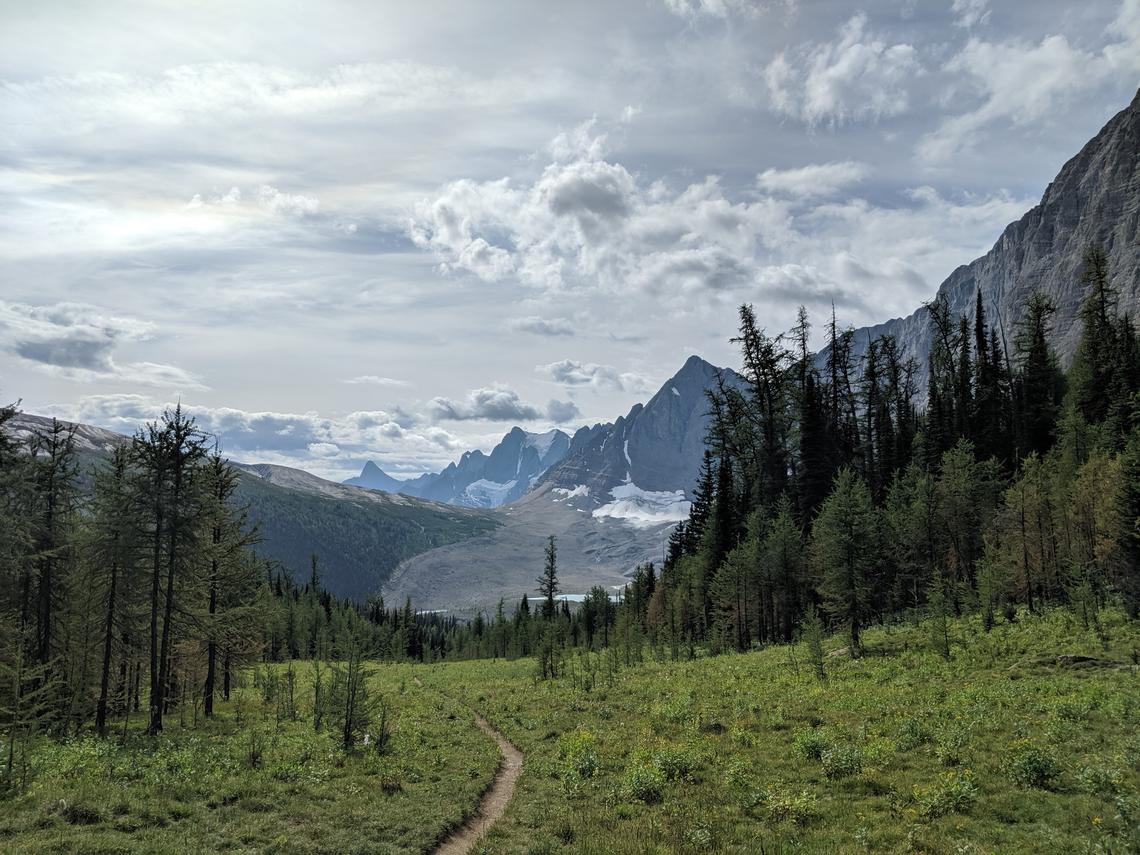May 25, 2021
Check out these summer backcountry trips for new-to-mountain adventurers

Are you looking to join the thousands of Albertans who have fallen in love with backcountry camping? This popular summer pastime is a great way to visit exciting spots in the mountains, stay active, test out new skills, and create lifelong memories. If you’re new to camping, the University of Calgary's Outdoor Centre is a great resource for gear rentals, trip ideas, and even for finding new adventure partners.
These five hikes vary from very easy to technical and are all within a 2.5-hour drive of Calgary.
Elbow Lake (Peter Lougheed Provincial Park)
Great for: very young families (toddler-plus or first-time backcountry campers).
This campground is only about 1.5 kilometres from the parking lot, and it includes just 125 metres of elevation gain. Although it’s a small amount, it can seem a little daunting at first because of how short the trail is. The campground is right on the lake and there are 15 tent pads. Campsites have firepits and there are communal bear lockers.
Lillian Lake (Kananaskis Country)
Great for: young families (6 – 10 years old) or first-time backcountry campers.
This campground is about 75 per cent of the way to the very popular Galatea Lakes hike, and is 6.3 km from the main trailhead. Lillian Lake is a beautiful mountain lake with a 475-metre elevation gain. There are group firepits, communal bear lockers, and a couple of the tent pads even include raised platforms to give you great views of the water.
Iceline (Yoho National Park)
Great for: intermediate backcountry hikers who are looking for great views and beautiful campsites. Not for the fair-weather hiker as this hike has a large number of exposed walks that should not be done if there is thunder and/or lightning.
Iceline is often completed as a three-day backcountry hike and has a number of different routes that can be taken depending on campground selection. The most popular campgrounds are Laughing Falls, Little Yoho and Yoho Lake. The most common route is 22 km (1,050 m of elevation gain), and it includes waterfalls, mountain lakes, ridge walks, meadows, and a very dramatic skyline. The hike starts and ends right by Takakkaw Falls, so make sure you take the time to check it out!
Northover Ridge (Peter Lougheed Provincial Park)
Great for: intermediate to advanced backcountry hikers who are comfortable with technical scrambles and dramatic ascents. Not for the fair-weather hiker as this hike has a large number of exposed walks that should not be done if there is thunder and/or lightning.
Most seasoned backcountry campers in Alberta will tell you that Northover Ridge is one of the most spectacular hikes in the Rockies. Aster Lake and Three Isle Lake campgrounds are picture-perfect, even in poor weather, and the ridge walk along the provincial border feels like it’s straight out of a National Geographic magazine shoot. The entire hike is 34 km long, and you’ll gain 2,170 m of elevation over the three days. Don’t be surprised if you see a couple of ultrarunners huffing by you if there’s good weather; this is a very popular trail run for the Type 2 endurance lovers.
Rockwall Trail (Kootaney National Park)

Rockwall backcountry hike
Great for: experienced hikers that are comfortable with long multi-pass days (high chance of seeing wildlife).
Rockwall Trail is among the top five backcountry trips in Canada and can be tough to book with the increasing popularity of Parks Canada. The most popular route is a four-day point-to-point starting at the Paint Pots trailhead and ending at the Floe Lake parking lot. The hike is 55 km long with close to 3,000 m of elevation gain; the main feature, the Rockwall, is visible for a good portion of the second day (if you’re going north to south). This hike includes beautiful alpine meadows, rocky ridges, mountain lakes, waterfalls, picturesque rivers, and well-kept campgrounds. There are a number of passes, and no day can really be seen as a “rest” day. This route will be especially challenging for anyone suffering from recurring knee pain due to the very steep descents throughout the entire trip. Floe Lake can also be done as a stand-alone trip, though the campground books up very quickly.






